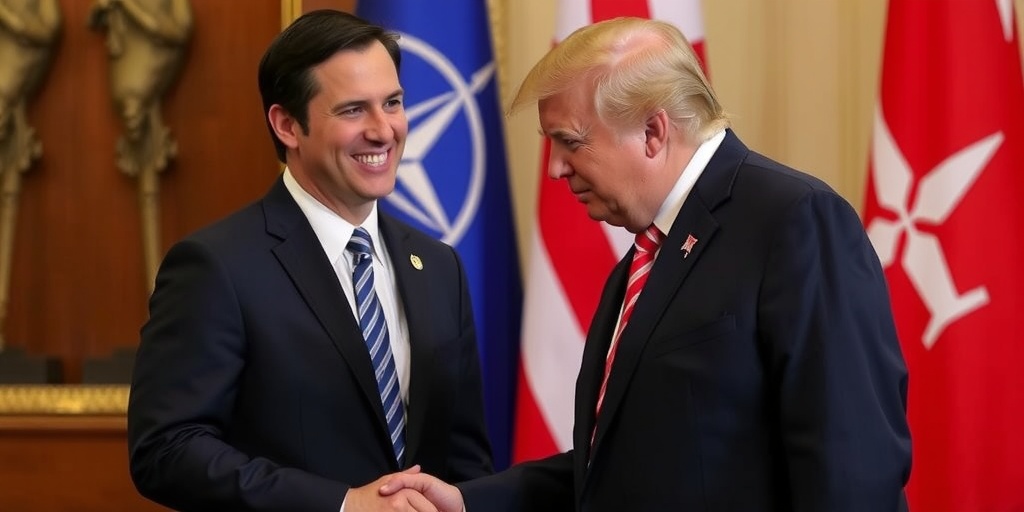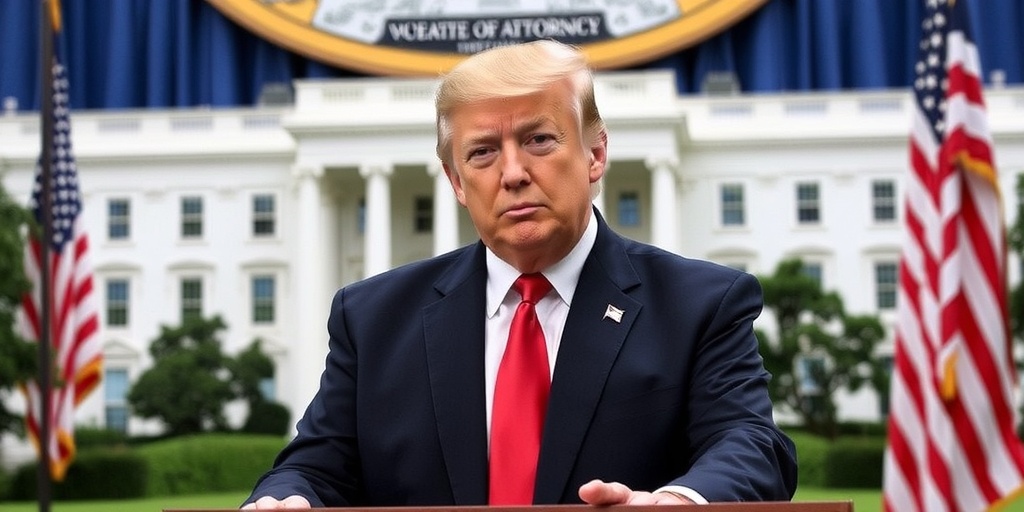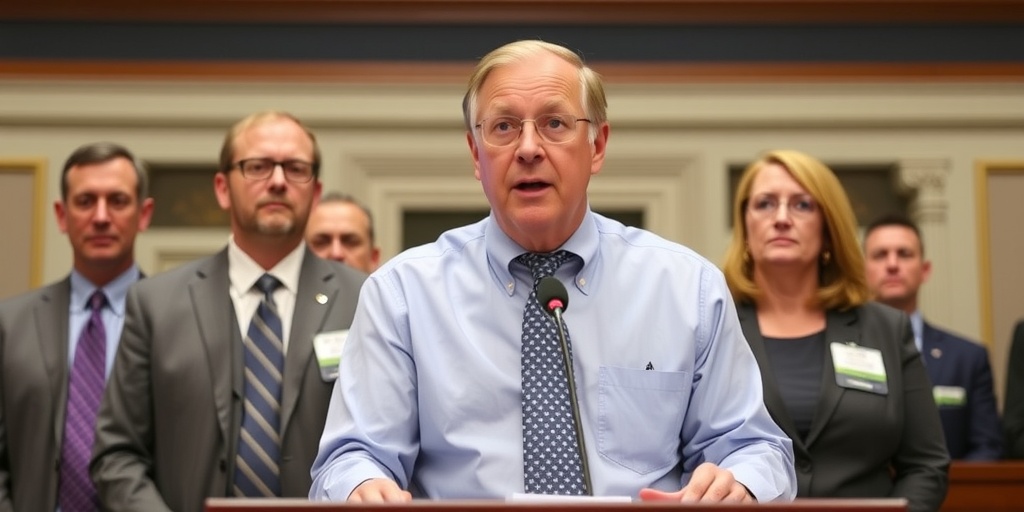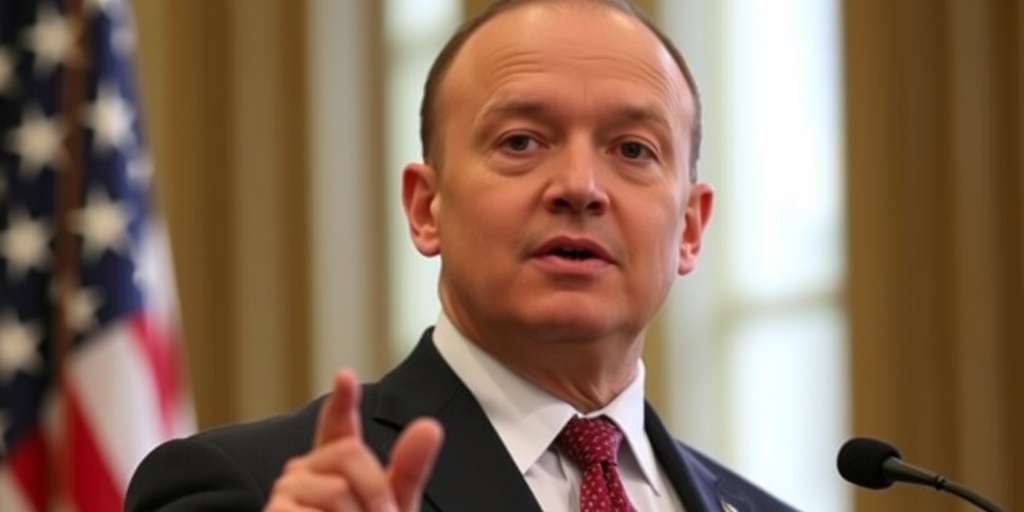Now Reading: 5 Key Insights from Trump’s Joint Chiefs Chairman Hearing
-
01
5 Key Insights from Trump’s Joint Chiefs Chairman Hearing
5 Key Insights from Trump’s Joint Chiefs Chairman Hearing
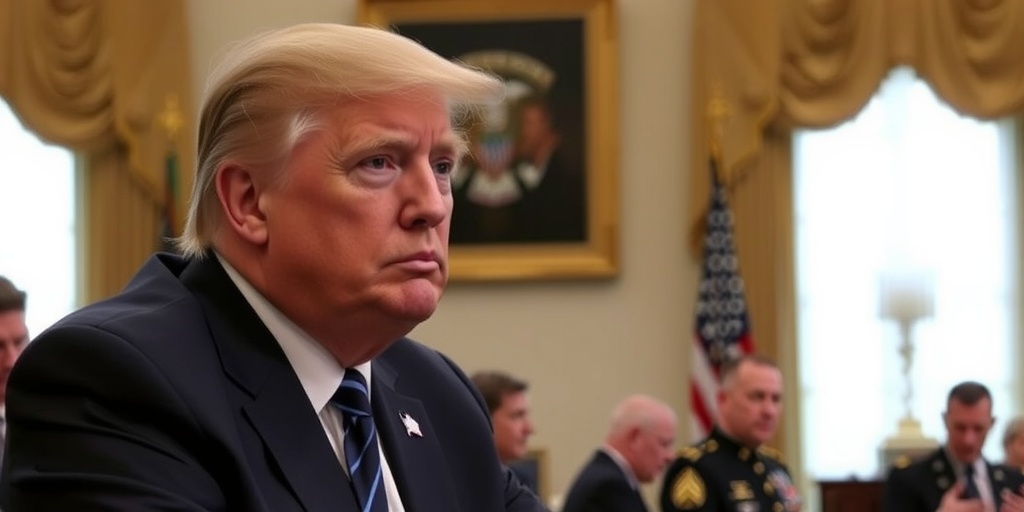
General Dan Caine’s Confirmation Hearing: A Smooth Process Amidst Tensions
In a notable confirmation hearing on Tuesday, Lieutenant General Dan Caine, nominated by President Trump to lead the Joint Chiefs of Staff, experienced a surprisingly smooth examination, especially when compared to the contentious nature of hearings for many of Trump’s other nominees. The proceedings presented an atmosphere of relative harmony, with moderate criticisms from Democrats directed primarily at the president’s recent decision to dismiss General Charles Q. Brown, the previous chairman of the Joint Chiefs. However, it seemed that many committee members regarded General Caine as a potentially viable candidate under the current circumstances, with Republican senators expressing admiration for him.
One of the significant takeaways from the hearing is the strong likelihood that General Caine will secure the necessary votes for confirmation. His expected approval by the Armed Services Committee and the Senate as a whole contrasts sharply with the last defense secretary, Pete Hegseth, who gained his position only through a narrow, tie-breaking vote from Vice President JD Vance. Throughout the discussion, it became evident that while Democrats were eager for General Caine to commit to opposing some of Hegseth’s policies—particularly those seen as detrimental to ethnic minorities and women—they were also cautious about pushing too hard for fear of damaging future relationships with both the nominee and the president.
Senator Jack Reed of Rhode Island, the leading Democrat on the committee, emphasized the importance of delivering candid military advice, stating, “I expect you to pledge to always provide your best military advice to the president and the secretary of defense, even if that advice is not what they would want to hear.” This statement underscored the delicate balance the committee is attempting to strike: holding the nominee accountable while also fostering collaboration with the Department of Defense.
Another topic of discussion was a recent debacle involving Pete Hegseth and the misuse of the Signal messaging app, where sensitive military information about upcoming attacks was disclosed on a commercial platform. During the hearing, senators questioned General Caine about this incident. Although he refrained from directly criticizing Hegseth, he made it clear that such discussions should not occur in group chats, reinforcing the need for operational security. “We should always preserve the element of surprise,” he noted, reiterating the importance of maintaining confidentiality in military operations.
The interactions during the hearing indicated a stark contrast between General Caine’s approach and that of his predecessor, Hegseth, particularly in terms of engagement with Democratic senators. Hegseth had met with only one Democrat prior to his confirmation, whereas a number of Democratic senators expressed their gratitude to General Caine for making the effort to meet with them ahead of time. Senator Jeanne Shaheen of New Hampshire specifically appreciated their discussions about the challenges he will face in his new role.
General Caine articulated a firm stance during the hearing regarding U.S. adversaries, specifically identifying Russia as one of America’s foremost threats, a view that diverges significantly from Trump’s more conciliatory approach toward the Kremlin. In his opening remarks, he elaborated on the nation’s adversaries, stating, “It is 9:48 p.m. in Beijing, 6:48 p.m. in Tehran, 4:48 p.m. in Moscow, and 10:48 p.m. in Pyongyang. As we sit here now, our nation faces an unprecedented rising global risk. Our adversaries are advancing.” This declaration highlights a shifting perspective within the military establishment as it aligns itself more with traditional views of international relations.
Moreover, several Democratic senators warned General Caine about the possible consequences of providing candid military advice to President Trump, referencing the turbulent fate of his predecessor, General Mark Milley. Senator Mazie Hirono of Hawaii raised concerns about the ramifications that came with Milley’s outspoken stance, recalling how Trump stripped him of his security detail and is now under investigation within the Department of Defense. Hirono cautioned, “It’s always a challenge to stand up to this president,” emphasizing the political tightrope that military leaders must navigate in the current administration.
In conclusion, while General Dan Caine’s confirmation hearing unfolded with relative ease compared to previous nominees, underlying tensions remain. The senators’ inquiries reflected a cautious optimism about Caine’s ability to serve effectively in a highly politicized environment. As the confirmation process moves forward, it remains to be seen how Caine will manage the delicate balance between providing authentic military advice and maintaining favorable relations with the administration.
Stay Informed With the Latest & Most Important News
Previous Post
Next Post
-
 01New technology breakthrough has everyone talking right now
01New technology breakthrough has everyone talking right now -
 02Unbelievable life hack everyone needs to try today
02Unbelievable life hack everyone needs to try today -
 03Fascinating discovery found buried deep beneath the ocean
03Fascinating discovery found buried deep beneath the ocean -
 04Man invents genius device that solves everyday problems
04Man invents genius device that solves everyday problems -
 05Shocking discovery that changes what we know forever
05Shocking discovery that changes what we know forever -
 06Internet goes wild over celebrity’s unexpected fashion choice
06Internet goes wild over celebrity’s unexpected fashion choice -
 07Rare animal sighting stuns scientists and wildlife lovers
07Rare animal sighting stuns scientists and wildlife lovers













